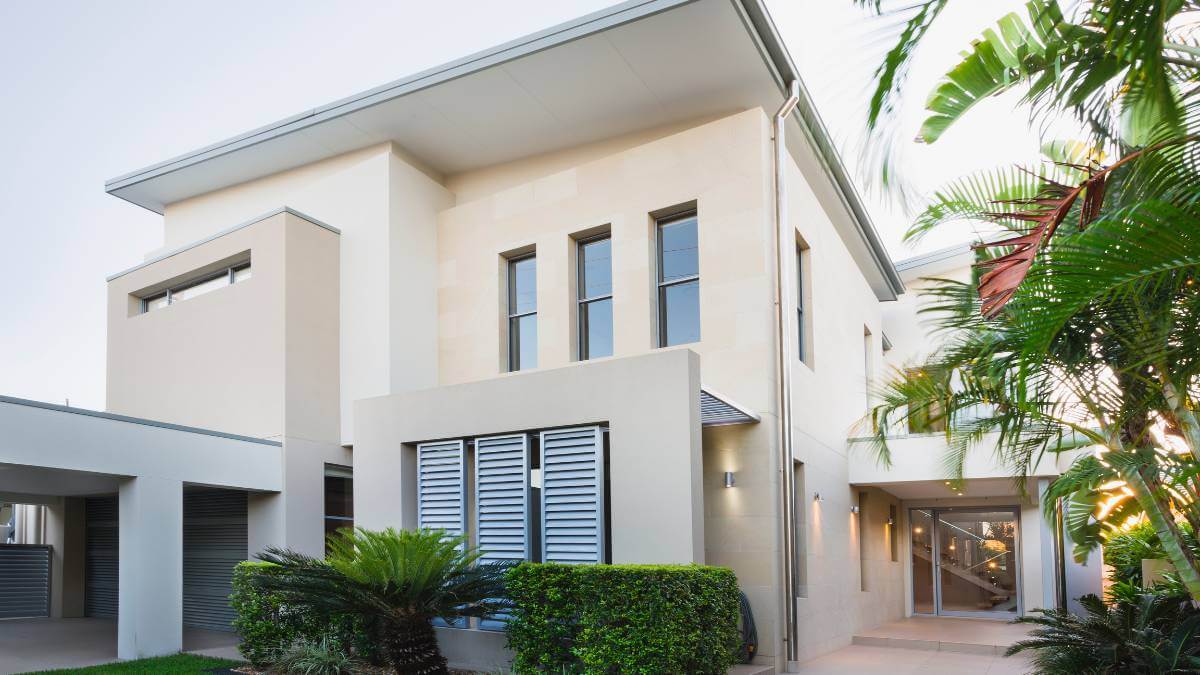Last Updated on November 28, 2023 by Kravelv Spiegel
In the ever-evolving world of architecture and design, the exterior of a building serves as its first visual impression, a prelude to the stories unfolding within. Modern exterior designs have become the canvas for architectural innovation, marrying functionality with aesthetics. This exploration delves into the key elements that define contemporary exteriors, reshaping the way we perceive and interact with our built environment.
1. Simplicity Redefined: Clean Lines and Minimalism
A defining characteristic of modern exteriors lies in their commitment to clean lines and simplicity. The ethos of ‘less is more’ takes center stage, with uncluttered facades and an emphasis on essential elements. Architectural features such as large windows, flat roofs, and geometric shapes contribute to a sleek and sophisticated appearance, fostering a sense of openness and connection with the surroundings.
2. Material Alchemy: A Symphony of Glass, Steel, and Wood
Materials play a pivotal role in shaping the modern exterior aesthetic. Architects and designers experiment with a diverse range, including glass, steel, concrete, and wood, to achieve a harmonious blend of form and function. Glass, in particular, emerges as a hallmark, facilitating transparent walls that dissolve the boundaries between indoor and outdoor spaces. This bathes interiors in natural light and provides uninterrupted views, seamlessly integrating architecture with nature.
3. Earthy Elegance: The Nuanced Modern Color Palette
Modern exteriors embrace a color palette characterized by neutrality and earthy tones. Whites, grays, and natural hues dominate, creating a timeless and calming ambiance. This subdued color scheme enhances visual appeal while fostering harmony with the surrounding landscape. The exterior, through its palette, becomes a canvas where the building and nature engage in a harmonious dialogue.
4. Outdoor Living Reimagined: Landscaping as an Extension
Landscaping becomes an integral component of modern exterior design, reimagining outdoor spaces as extensions of the interior. Gardens, patios, and courtyards are carefully integrated, creating cohesive and functional areas. Sustainable landscaping practices, such as the use of native plants and water-efficient systems, align with the eco-conscious ethos of modern design, creating spaces that are not just aesthetically pleasing but environmentally responsible.
5. Sustainable Innovation: A Greener Tomorrow
Sustainability takes center stage in modern exteriors, reflecting a collective awareness of environmental issues. Green roofs, solar panels, and energy-efficient windows exemplify the fusion of aesthetics and eco-consciousness. The commitment to sustainable practices not only reduces the ecological footprint of a building but also aligns with the values of a society increasingly concerned with the impact of human activity on the planet.
6. Tech-Savvy Living: Integrating Technology
Technology seamlessly integrates into modern exterior designs, offering smart home features, automated lighting, and advanced security systems. These technological enhancements not only elevate the user experience but also underscore the adaptability of modern design to the evolving needs of its occupants. The fusion of technology with architecture creates residences that are visually stunning and highly functional in the digital age.
Conclusion
The exploration of modern exterior designs reveals a dynamic interplay between form, function, and future-forward thinking. From the simplicity of clean lines to the sustainability imperative, these designs stand as testaments to the adaptability of architecture in shaping spaces that reflect and respond to the evolving aspirations of contemporary living. Embracing elegance, modern exteriors redefine the aesthetics of our built environment, setting the stage for a new era of architectural innovation.

